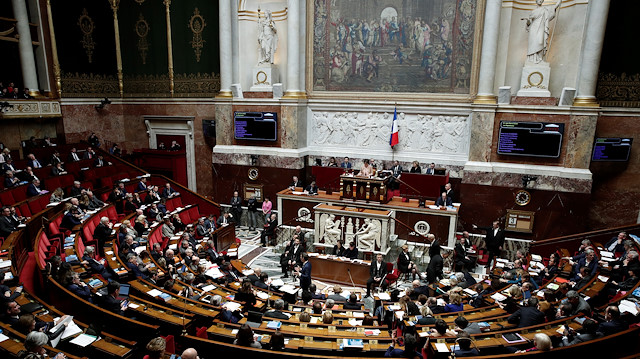
Lower house of parliament approves controversial legislation surviving two no-confidence votes, Senate to discuss it
After weeks of heated debates, France’s pension reform bill passed through the lower house of French parliament on Wednesday, clearing key hurdle for the president’s hallmark reforms.
The National Assembly approved the bill, which aims to streamline 42 separate pension schemes into one point-based system, touted to be simpler and more fair.
In final parliamentary discussions in the very early morning, the bill endured two no-confidence votes, despite being comprised of 39 articles and having had 41,000 amendments posted by opposition parties to delay its adoption.
The opposition failed against President Emmanuel Macron’s centrist majority in the National Assembly.
It will now head back to the Senate for debate, and then again to the National Assembly for a final discussion before it is adopted as law or not.
It was the latest round in the debate that has consumed the government as well as France's populace, the backlash against changes to the current pension reform sparking countrywide protests throughout December and January and a near-cessation of France's transport systems during much of that time.
Key to the current debate was Prime Minister Edouard Philippe's announcement on Saturday of the use of the rare applied Constitutional article 49.3, which allows the government to pass a bill through parliament without a vote if they maintain the majority.
In his deflection last night against those voicing concern, Philippe brought up the fact that article 49.3 has been used six separate times by parliament in other recent legislative debates.
Union protests against the bill took place in various cities in France, including Paris, however none garnered the kinds of crowds seen in previous strikes that gripped the country.
Another larger protest of unions is planned for March 31.


